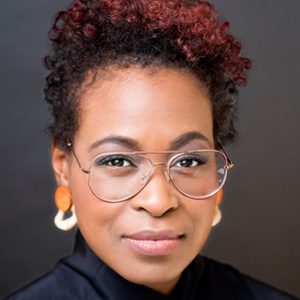While covering the Iowa caucuses earlier this year, Errin Haines, co-founder of The 19th, was surprised that a lot of the same mistakes of the 2016 election were happening again in political journalism.

“Most of the people that are covering our politics are white men, and most of the gatekeepers and decision makers around political journalism are white men,” she said. “What that told me was that the issue was not limited to any individual or was not limited to any individual newsroom, but that the problem was systemic, and that the fastest way to address this from a systemic structural response was to really just start over.”
One of the main catalysts behind The 19th — launched earlier this year — was to create a newsroom and coverage that was necessary for women and, Haines said, marginalized communities “who have not seen themselves reflected in our politics.”
“I think being at The 19th now, as a Black woman, really allows me to just bring my full self to the newsroom every day,” Haines said, “to be in a place that values my lived experience as an asset, and not a liability, to journalism.”
Haines is editor-at-large and a co-founder of The 19th, a nonprofit newsroom focused covering women, politics and policy, and was a national writer on race and ethnicity for the Associated Press. She has also written for The Los Angeles Times, The Orlando Sentinel and The Washington Post, and will present “The Role of Journalism & Media at the Intersection of Gender, Politics & Policy,” at 10:45 a.m. EDT Wednesday, July 29, on the CHQ Assembly Video Platform as part of the Week Five Chautauqua Lecture Series theme, “The Women’s Vote Centennial and Beyond.”
When she was in college in Atlanta, Haines started writing for The Atlanta Daily, interviewing city officials and occasionally leaders of the Civil Rights Movement.
“What that taught me was that our stories were important, stories about and by Black people were important,” Haines said, “but also that I shouldn’t have to fight or argue with anyone for why those stories matter and why they should be considered to be important journalism.”
She then covered national politics for the first time during President Barack Obama’s 2008 election, covering mainly the Black electorate. Haines said that intersection between race and politics is very pronounced and “covering race is really the unfinished business of our democracy.”
Haines covered the 2016 presidential election and the 2018 midterms with the Associated Press and is reporting on the 2020 presidential election with The 19th.
“My experience covering race for as long as I did made me uniquely qualified to cover politics in this moment,” she said, “to be able to see certain things and understand kind of what they are and what they meant. … All politics are identity politics.”
Haines started to report for The 19th shortly before COVID-19 spread to the United States. Like many other political journalists, she was following the campaign trail before the pandemic.
“This year was supposed to be our Super Bowl. (The presidential election) was the main event. Especially for us making our debut as a newsroom; this is going to be hugely consequential for us, but also for the country,” Haines said “By mid-March, the campaign trail had basically vanished. … It’s pretty much virtual.”
Haines said the team at The 19th realized they needed to pivot their focus to also covering how the pandemic has disproportionately impacted women, who make up a majority of essential workers in education, nursing and different caregiving fields. They are still covering the election, like Joe Biden’s upcoming vice presidential pick, and how the pandemic is affecting how people vote and participate in democracy.
Haines said it was important for The 19th to cover voting rights and suppression, as the news organization is named after the 19th Amendment. Aug. 18 marks the 100th anniversary of the 19th Amendment’s ratification, and Haines said the news agency plans on engaging as many women as possible, including those who have never voted or do not always vote.
During her Chautauqua lecture, Haines will discuss what she calls “the dual pandemics of coronavirus and racism” and the disparities and ethical questions exposed by the pandemic — such as who will be able to attend school or work safely and who will have secure access to food and housing.
“It’s not just about one president, one moment, the pandemic. It’s not just about George Floyd, Ahmaud Arbery, Breonna Taylor. It literally is about the intersection of everything for people,” Haines said. “Even before the pandemic, I was saying that racism is on the ballot, and that race and gender were kind of the story of 2020 — but I think that that could not be more true headed into November.”
This program is made possible by The Frank G. Sterritte Memorial Lectureship & the Dr. Robert R. Hesse Lectureship.




